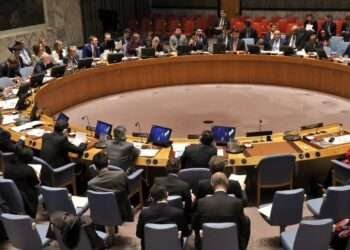Household spending growth in Egypt is expected to decelerate in 2022 by 3.2 per cent lower than the estimated 7.0 per cent over 2021 due to unfavorable base effects kicking in, according to Fitch Solutions.
Total household spending in real terms is expected to reach EGP837.3 billion (US$148.9 billion) in 2022, up from EGP706.7 billion (US$125.7 billion) in 2019. Egypt’s household sector bucked the global trend and held up well over the course of the Covid-19 pandemic, supported by strong remittance inflows and government support measures.
“We believe that the deceleration will chiefly be driven by unfavourable base effects following two years of above-trend consumer spending growth, facilitated by easing inflation and a rise in public-sector wages.”
Fitch Solutions
Fitch expects retail trade to remain solid over the remainder of 2021 as economic growth continues and the country’s vaccination drive improves. Retail sales in 2022 are likely to be characterised by lower real growth rates and an upward trend in inflation, Fitch said.
That said, rising consumer price inflation is a key risk to consumer spending into the beginning of 2022, as it has the potential to erode purchasing power. In 2022, Fitch projects inflation to average 7.1 per cent, reflecting stronger domestic demand. This ties in with the expectation for further upward adjustments to electricity prices due to the government’s plan to fully lift subsidies by 2025 leading to higher local fuel prices.
Real consumer spending in Egypt in 2022 is in line with growth forecast, expected to reach 5.0 per cent, an acceleration from growth of 3.3 per cent over 2021. Household spending over 2022 will be supported by strong remittance inflows and the rebound in tourism activity. In 2021, remittances amounted to US$33.3 billion, the highest level on record, and will continue to rise over 2022 driven by economic growth in key source markets, Fitch said.
Risks to Play out in 2022 Real Household Spending
According to Fitch, improvement in inbound tourist arrivals will improve labour dynamics and create tailwinds for the country’s consumer sector. While there are no signs indicating Egypt’s tourism sector will fully recover to pre-pandemic levels until 2023, the removal of travel restrictions, as well as high vaccination rates of staff in popular tourist destinations will bode well for the sector.
With economies reopening, consumers are demanding products that they had little access to over the previous year. However, manufacturers are facing several problems. Supply chain issues and bottlenecks are resulting in consumer goods shortages, leading to supply-side inflation.
“Our forecasts account for risks that are highly likely to play out in 2022, including the easing of government support. However, if other risks start to play out, they may lead to forecast revisions.”
Fitch Solutions
Furthermore, maintaining growth in consumer spending relies on the ability of authorities to vaccinate a large enough proportion of their populations and thereby experience a notable drop in Covid-19 infections.
As of November 20, 2021, only 13.5 per cent of Egyptians had been fully vaccinated against Covid-19, one of the lowest rates in the Middle East and North Africa (MENA) region and globally. As a result, new infection waves and higher levels of hospitalisations remain downside risks, Fitch said.
With such a slow pace in vaccination as at mid-November, 2021, “we believe it is unlikely the authorities will achieve their target vaccination rate of 40 per cent by the end of the year”. Meanwhile, the government aims to reach herd immunity by the end of 2022.
READ ALSO: Ecowas Sub-Region, A Growing Market For Ghana’s Non-Traditional Exports





















